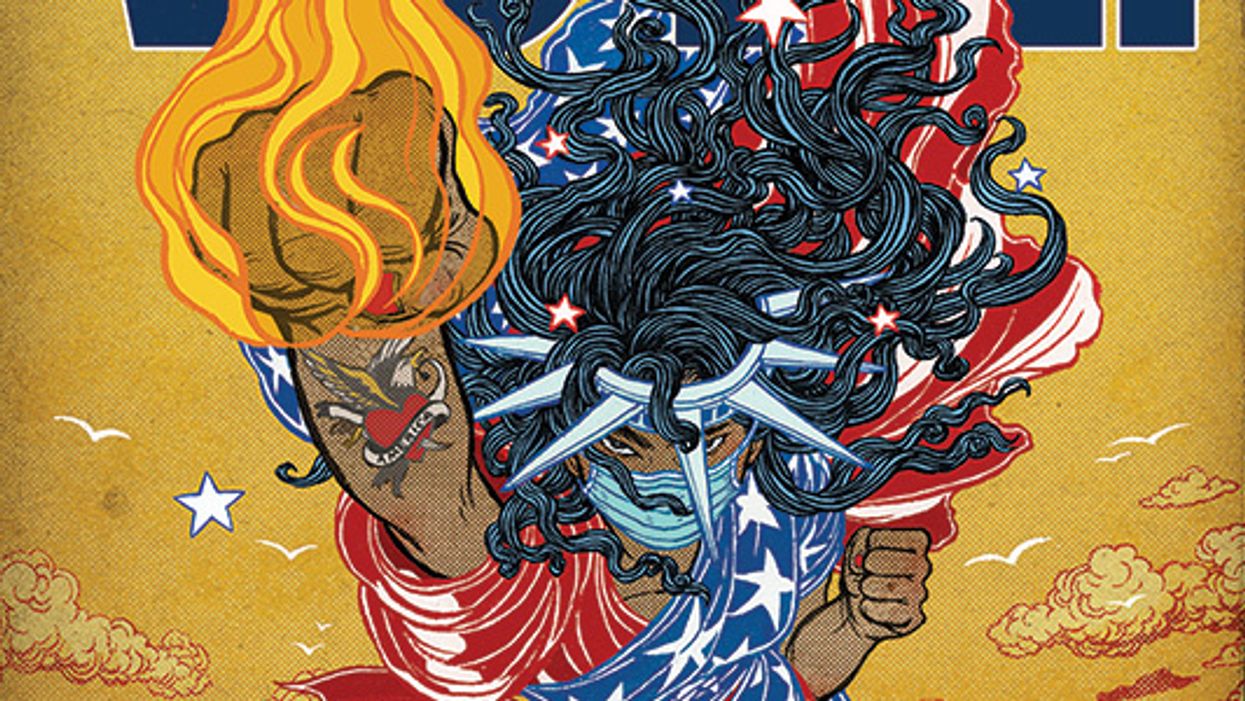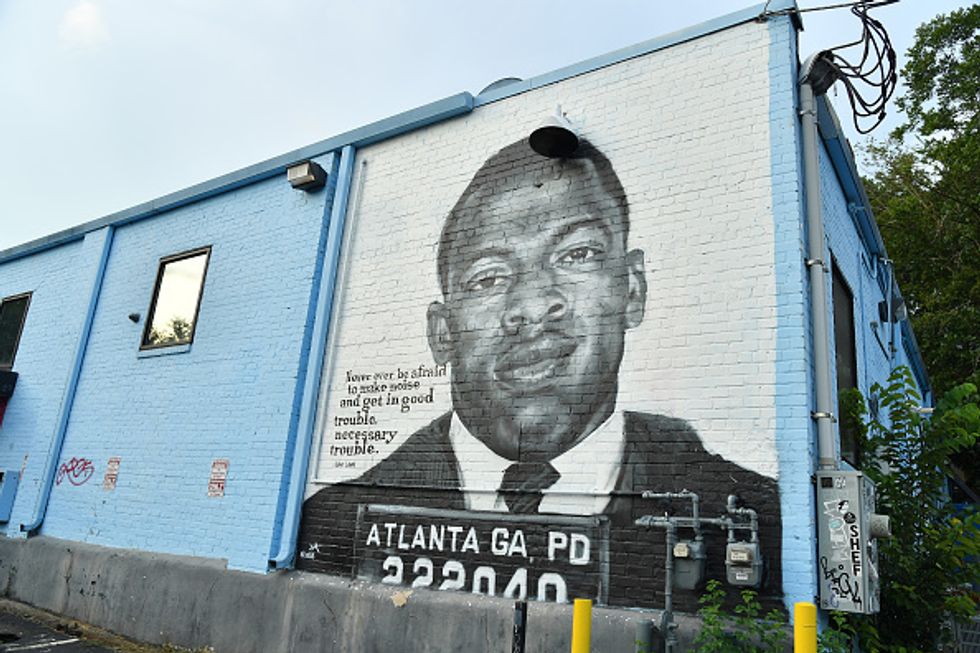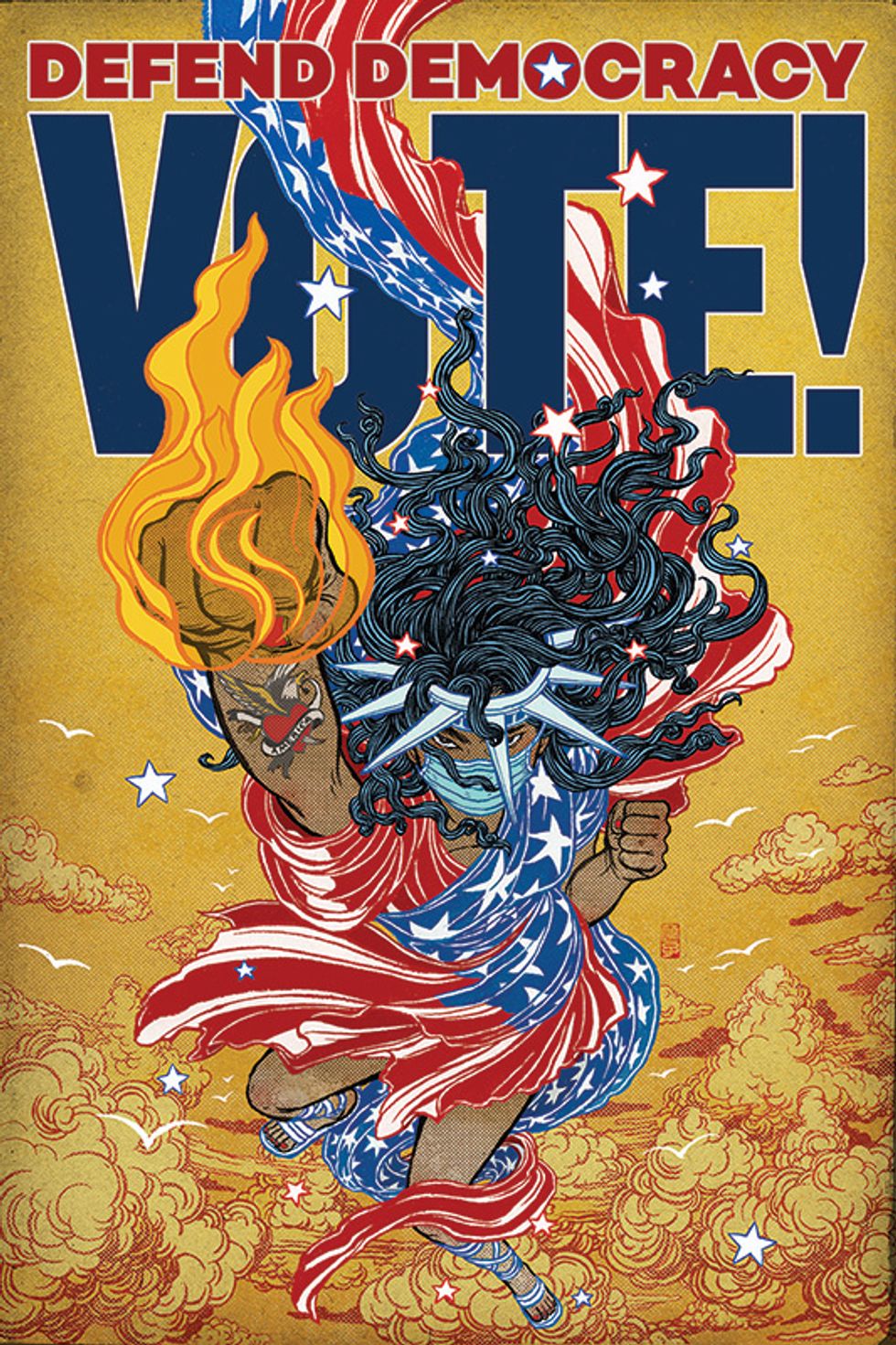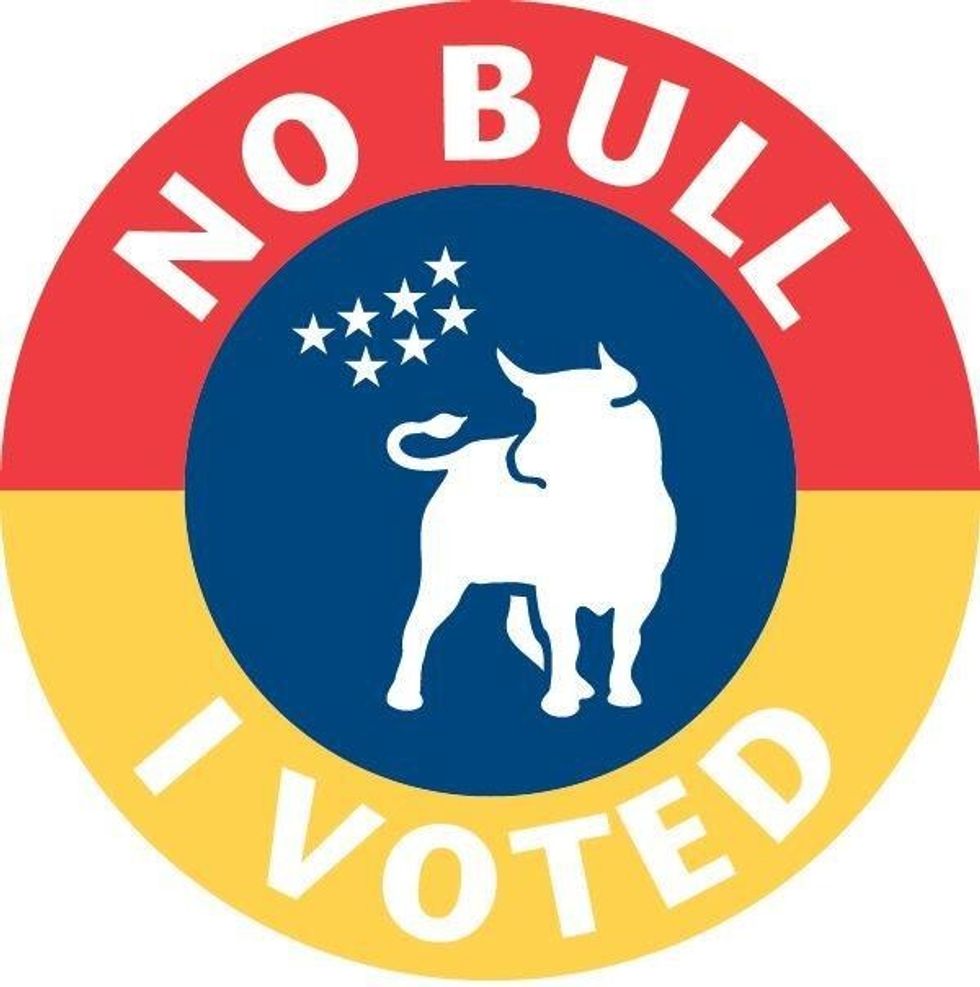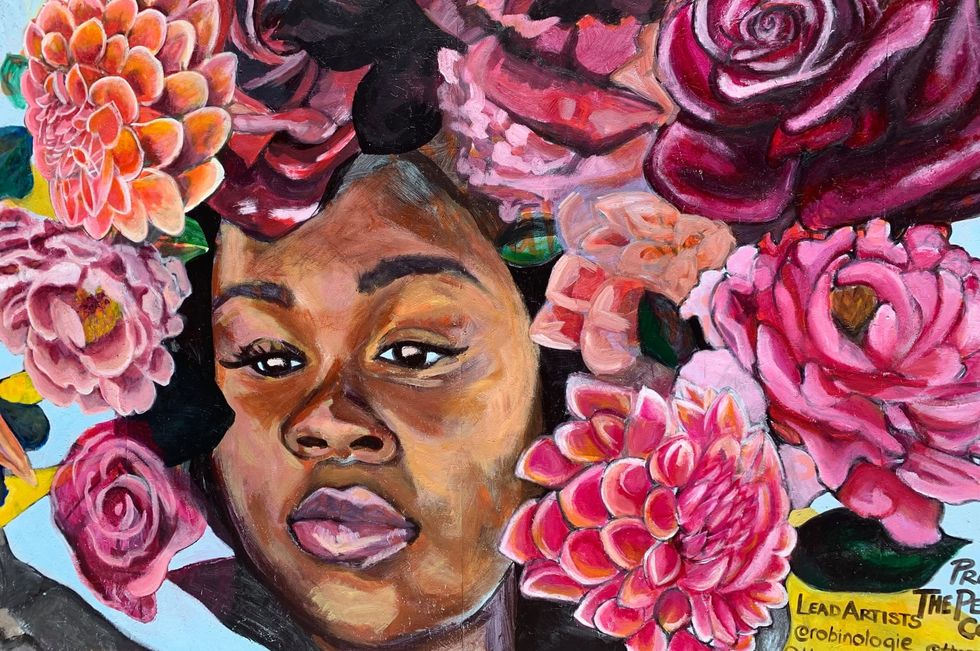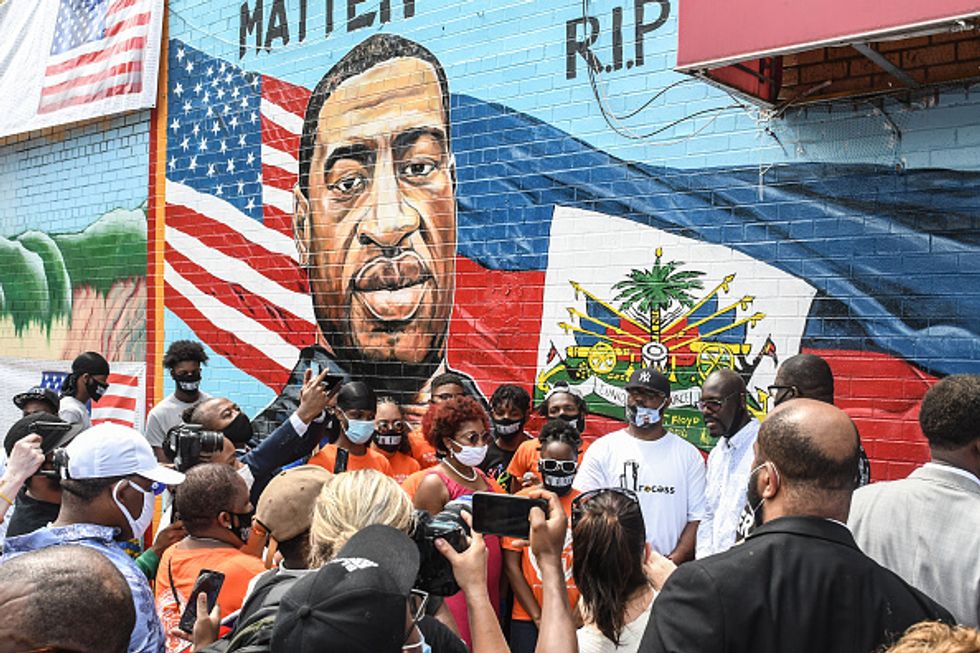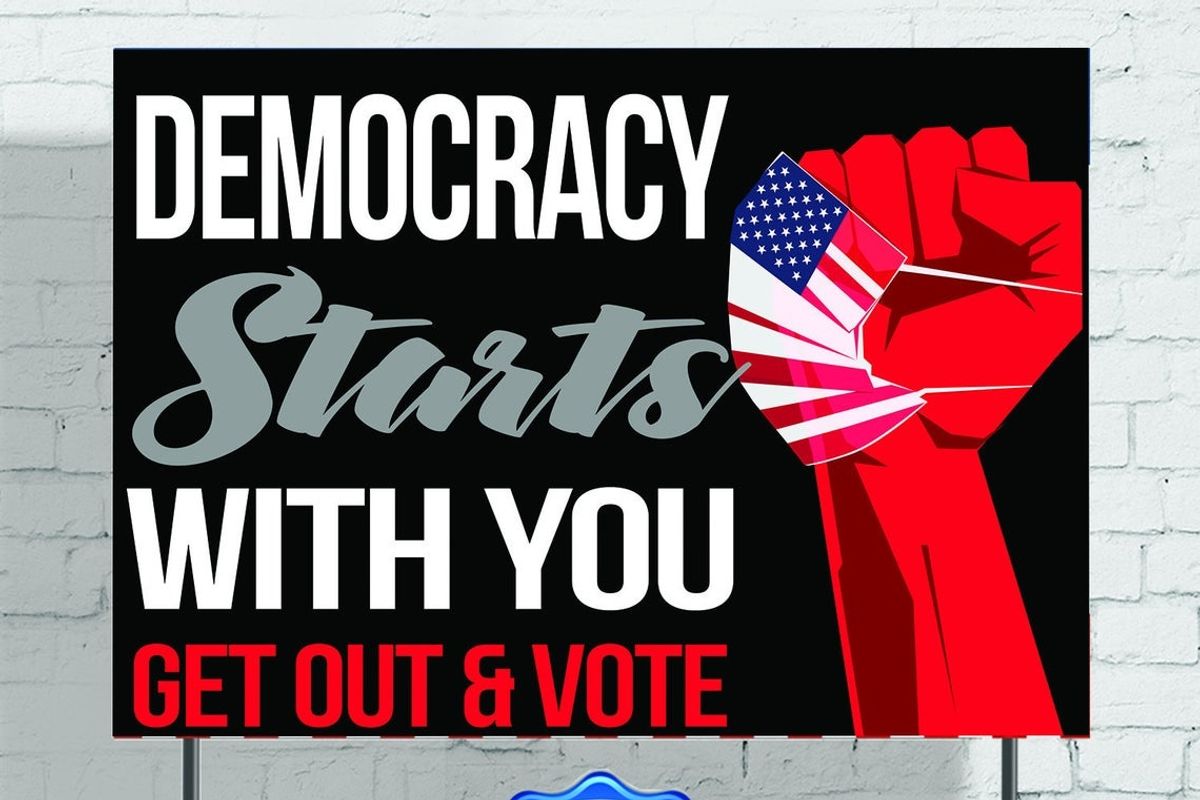In a year that has featured tumultuous debates about the very essence of our country, artists of all sorts have responded with an explosion of creativity.
There's been a wave of work: dramatic murals protesting the killing of Black people by police, songs celebrating President Trump and also mocking him, videos urging people to vote. There have been elaborate embroidered messages of protest and contests to design "I voted" stickers.
The outpouring of inventiveness reflects the passions evoked by a presidential election, overlaid on a health crisis with debates about racial justice and fundamental democratic principles thrown in the mix. The slideshow here is but a tiny sampling.
Democracy Matters, a nonpartisan student political reform group, sees art as key to their work and to building community.
"Art can inspire, shock, heal and express emotion," the group's website says. "It engages the senses and stimulates the mind. When art is seen as a core element of encouraging social action, its power moves from a source aesthetic appreciation to a strong political tool."
Diane Mullin, curator at the Weisman Art Museum at the University of Minnesota, has said that "art can teach us or demonstrate things about democracy."
"But art can also participate in democracy because artists are in very important ways contributors to discourse, and contributors to our society," she said said back when her museum was preparing for the 2008 Republican convention in Minneapolis and St. Paul. "So they can put forth proposals and propositions to make us think about things, to make us think about where we live, how we live."
This summer the nearby Minnesota Museum of American Art hosted an online forum of "Black Art in the Era of Protest." One key issue in the discussion was how to preserve the murals and other public displays that may end up being painted over or dismantled.
Here then is a gallery offering a glimpse of the artistic response to the election, racial injustice and the other existential questions about the state of democracy the nation is facing this year.
Bye, bye democracy
A mysterious group called Founders Sing, which has maintained its anonymity, this winter unveiled this melancholy ballad about the travails of the democratic system. More than 3.4 million have listened on YouTube — maybe because the song is set to the tune of Don McLean's "American Pie."





